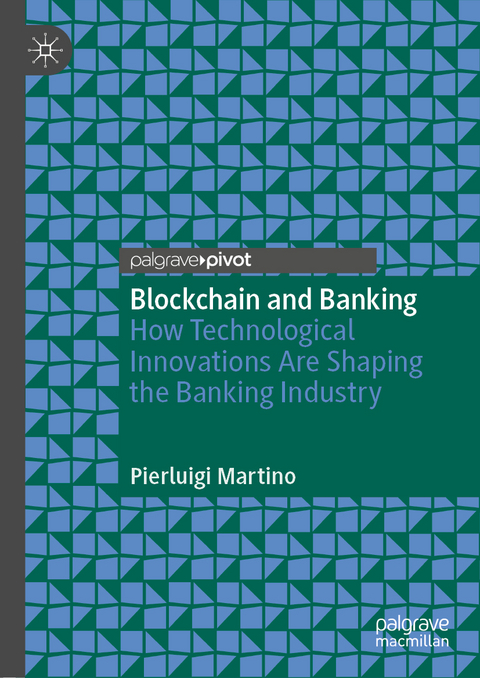
Blockchain and Banking
Springer International Publishing (Verlag)
978-3-030-70969-3 (ISBN)
This book explores blockchain technology's impact on banks, particularly how blockchain technology can create new opportunities for banks and poses new threats to their business. The digital revolution in the banking industry, whose customers are increasingly adapting to new technologies and new types of competitors and solutions arising in the space, has had a significant impact on the banking industry over the past few years, requiring banks to substantially rethink their business models and strategies in order to cope with these developments. The rise of blockchain's distributed ledger technology (DLT) has also played an important role since it has the potential to change the whole banking industry in faster and more disruptive ways than ever before.
Born as the technology underlying Bitcoin, which has been used to allow the recording of cryptocurrencies transactions, blockchain can facilitate the process of recording any transaction type and track the movement of any asset, finding application in many different areas. Specifically, it has been acknowledged as a disruptive force in the financial sector and a key source of future financial market innovation with the potential to reshape existing business models in the financial services industry.
Regarding the banking industry in particular, existing literature suggests that blockchain poses new challenges and generates opportunities as well as threats. This is pushing banks to rethink their operations, business models and strategies. However, literature in this regard is still in its infancy, and we do not yet have a clear understanding of blockchain technology's potential implications for banks. This book expands the literature on blockchain technology in banking by providing new insights into the developments, trends and challenges of blockchain in the banking industry. In particular, sheds more light on the implications of blockchain technology for banks by discussing the advantages and disadvantages related to this technology and exploring its potential impact on traditional banking business models.
lt;p>Pierluigi Martino is a Researcher in Financial Markets and Institutions at the Department of Economics and Management, University of Pisa, Italy. He has also been a Research Assistant at the Cass Business School, City University of London, UK. His research interests are in the areas of banking, corporate governance, entrepreneurial finance and blockchain technology.
Chapter 1: Blockchain Technology.- Chapter 2: Blockchain Technology and the Banking Industry.- Chapter 3: Regulation on Blockchain.- Chapter 4: Blockchain: The Emerging of New Banks Business Models?.
| Erscheinungsdatum | 08.04.2021 |
|---|---|
| Zusatzinfo | VII, 109 p. 2 illus. |
| Verlagsort | Cham |
| Sprache | englisch |
| Maße | 148 x 210 mm |
| Gewicht | 288 g |
| Themenwelt | Technik |
| Wirtschaft ► Betriebswirtschaft / Management ► Finanzierung | |
| Betriebswirtschaft / Management ► Spezielle Betriebswirtschaftslehre ► Bankbetriebslehre | |
| Wirtschaft ► Betriebswirtschaft / Management ► Unternehmensführung / Management | |
| Schlagworte | Anti-money laundering • Banking • Banking Efficiency • Bitcoin • Blockchain technology • Crytpocurrencies • Cyber risks • Distributed Ledger Technology • Financial regulation • FinTech • Organisational Change • Payment systems |
| ISBN-10 | 3-030-70969-8 / 3030709698 |
| ISBN-13 | 978-3-030-70969-3 / 9783030709693 |
| Zustand | Neuware |
| Informationen gemäß Produktsicherheitsverordnung (GPSR) | |
| Haben Sie eine Frage zum Produkt? |
aus dem Bereich


